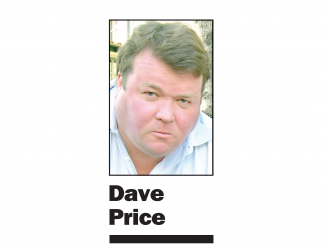
Federal grand jury has indicted Elizabeth Holmes on criminal fraud charges for allegedly defrauding investors, doctors and patients as the head of Palo Alto-based blood-testing startup Theranos.
The U.S. Attorney’s Office for the Northern District of California said today (June 15) that Holmes and her chief operating officer Ramesh Balwani, are charged with two counts conspiracy to commit wire fraud and nine counts of wire fraud.
Holmes, a Stanford dropout once billed as the “next Steve Jobs,” founded Theranos as a blood-testing company located in the Stanford Research Park. However, investigations into the company showed its testing results to be wrong or deeply inaccurate.
The Securities and Exchange Commission brought civil fraud charges against Holmes and Balwani three months ago. Holmes settled with the SEC. Balwani is fighting the charges.
— By the Associated Press
THERANOS FOUNDER AND FORMER CHIEF OPERATING OFFICER CHARGED IN ALLEGED WIRE FRAUD SCHEMES
Elizabeth Holmes and Ramesh “Sunny” Balwani Are Alleged To Have Perpetrated Multi-million Dollar Schemes To Defraud Investors, Doctors, and Patients.
SAN JOSE — A federal grand jury has indicted Elizabeth A. Holmes and Ramesh “Sunny” Balwani, announced Acting United States Attorney Alex G. Tse, Federal Bureau of Investigation (FBI) Special Agent in Charge John F. Bennett; Food and Drug Administration (FDA) Commissioner Scott Gottlieb; and U.S. Postal Inspection Service (USPIS) Inspector in Charge Rafael Nunez. The defendants are charged with two counts of conspiracy to commit wire fraud and nine counts of wire fraud. According to the indictment returned yesterday and unsealed today, the charges stem from allegations Holmes and Balwani engaged in a multi-million dollar scheme to defraud investors, and a separate scheme to defraud doctors and patients. Both schemes involved efforts to promote Palo Alto, Calif.-based Theranos.
Holmes, 34, of Los Altos Hills, Calif., founded Theranos in 2003. Theranos is a private health care and life sciences company with the stated mission to revolutionize medical laboratory testing through allegedly innovative methods for drawing blood, testing blood, and interpreting the resulting patient data. Balwani, 53, of Atherton, Calif., was employed at Theranos from September of 2009 through 2016. At times during that period, Balwani worked in several capacities including as a member of the company’s board of directors, as its president, and as its chief operating officer.
According to the indictment, Holmes and Balwani used advertisements and solicitations to encourage and induce doctors and patients to use Theranos’s blood testing laboratory services, even though the defendants knew Theranos was not capable of consistently producing accurate and reliable results for certain blood tests. The tests performed on Theranos technology, in addition, were likely to contain inaccurate and unreliable results.
The indictment alleges that the defendants used a combination of direct communications, marketing materials, statements to the media, financial statements, models, and other information to defraud potential investors. Specifically, the defendants claimed that Theranos developed a revolutionary and proprietary analyzer that the defendants referred to by various names, including as the TSPU, Edison, or minilab. The defendants claimed the analyzer was able to perform a full range of clinical tests using small blood samples drawn from a finger stick. The defendants also represented that the analyzer could produce results that were more accurate and reliable than those yielded by conventional methods — all at a faster speed than previously possible.
The indictment further alleges that Holmes and Balwani knew that many of their representations about the analyzer were false. For example, allegedly, Holmes and Balwani knew that the analyzer, in truth, had accuracy and reliability problems, performed a limited number of tests, was slower than some competing devices, and, in some respects, could not compete with existing, more conventional machines.
“This district, led by Silicon Valley, is at the center of modern technological innovation and entrepreneurial spirit; capital investment makes that possible,” said Acting U.S. Attorney Tse. “Investors large and small from around the world are attracted to Silicon Valley by its track record, its talent, and its promise. They are also attracted by the fact that behind the innovation and entrepreneurship are rules of law that require honesty, fair play, and transparency. This office, along with our other law enforcement partners in the Bay Area, will vigorously investigate and prosecute those who do not play by the rules that make Silicon Valley work. Today’s indictment alleges that through their company, Theranos, CEO Elizabeth Holmes and COO Sunny Balwani not only defrauded investors, but also consumers who trusted and relied upon their allegedly-revolutionary blood-testing technology.”
“This indictment alleges a corporate conspiracy to defraud financial investors,” said Special Agent in Charge Bennett. “This conspiracy misled doctors and patients about the reliability of medical tests that endangered health and lives.”
“The conduct alleged in these charges erodes public trust in the safety and effectiveness of medical products, including diagnostics. The FDA would like to extend our thanks to our federal law enforcement partners for sending a strong message to Theranos executives and others that these types of actions will not be tolerated,” said Catherine A. Hermsen, Acting Director, FDA Office of Criminal Investigations.
“The United States Postal Inspection Service has a long history of successfully investigating complex fraud cases,” said Inspector in Charge Rafael E. Nuñez. “Anyone who engages in deceptive practices should know they will not go undetected and will be held accountable. The collaborative investigative work on this case conducted by Postal Inspectors, our law enforcement partners, and the United States Attorney’s Office illustrates our efforts to protect both consumers and investors.”
The Indictment Alleges That Doctors And Patients Were Defrauded
The indictment alleges Holmes and Balwani defrauded doctors and patients by making false claims concerning Theranos’s ability to provide accurate, fast, reliable, and cheap blood tests and test results, and through omissions concerning the limits of and problems with Theranos’s technologies. The defendants knew Theranos was not capable of consistently producing accurate and reliable results for certain blood tests, including the tests for calcium, chloride, potassium, bicarbonate, HIV, Hba1C, hCG, and sodium. The defendants nevertheless used interstate electronic wires to purchase advertisements intended to induce individuals to purchase Theranos blood tests at Walgreens stores in California and Arizona. Through these advertisements, the defendants explicitly represented to individuals that Theranos’s blood tests were cheaper than blood tests from conventional laboratories to induce individuals to purchase Theranos’s blood tests.
Further, the indictment alleges that based on the defendants’ misrepresentations and omissions, many hundreds of patients paid, or caused their medical insurance companies to pay, Theranos, or Walgreens acting on behalf of Theranos, for blood tests and test results, sometimes following referrals from their defrauded doctors. In addition, the defendants delivered to doctors and patients blood results that were inaccurate, unreliable, and improperly validated. The defendants also delivered to doctors and patients blood test results from which critical results were improperly removed.
The indictment describes a number of schemes that defendants allegedly employed to mislead investors, doctors, and patients. For example, with respect to investors, defendants performed technology demonstrations during which defendants intended to cause potential investors to believe blood tests were being conducted on Theranos’s proprietary analyzer when, in fact, the analyzer really was running a “null protocol” and was not testing the potential investor’s blood. Similarly, defendants purchased and used commercially-available analyzers to test patient blood, while representing to investors that Theranos conducted its patients’ tests using Theranos-manufactured analyzers.
The Indictment Alleges That Investors Were Defrauded
According to the indictment, the defendants also allegedly made numerous misrepresentations to potential investors about Theranos’s financial condition and its future prospects. For example, the defendants represented to investors that Theranos conducted its patients’ tests using Theranos-manufactured analyzers; when, in truth, Holmes and Balwani knew that Theranos purchased and used for patient testing third party, commercially-available analyzers. The defendants also represented to investors that Theranos would generate over $100 million in revenues and break even in 2014 and that Theranos expected to generate approximately $1 billion in revenues in 2015 when, in truth, the defendants knew Theranos would generate only negligible or modest revenues in 2014 and 2015.
Further, defendants allegedly represented to investors that Theranos had a profitable and revenue-generating business relationship with the United States Department of Defense and that Theranos’s technology had deployed to the battlefield when, in truth, Theranos had limited revenue from military contracts and its technology was not deployed in the battlefield. In addition, the defendants represented to investors that Theranos would soon dramatically increase the number of Wellness Centers within Walgreens stores when, in truth, Holmes and Balwani knew by late 2014 that Theranos’s retail Walgreens rollout had stalled because of several issues, including that Walgreens’s executives had concerns with Theranos’s performance.
An indictment merely alleges that crimes have been committed, and the defendants are presumed innocent until proven guilty beyond a reasonable doubt.
The indictment charges each defendant with two counts of conspiracy to commit wire fraud, in violation of 18 U.S.C. § 1349, and nine counts of wire fraud, in violation of 18 U.S.C. § 1343. If convicted, the defendants face a maximum sentence of twenty (20) years in prison, and a fine of $250,000, plus restitution, for each count of wire fraud and for each conspiracy count. However, any sentence following conviction would be imposed by the court after consideration of the U.S. Sentencing Guidelines and the federal statute governing the imposition of a sentence, 18 U.S.C. § 3553.
Both defendants appeared today before U.S. Magistrate Judge Susan van Keulen for their initial appearances. The matter was assigned to the Honorable Lucy H. Koh, U.S. District Judge, for further proceedings.
Assistant U.S. Attorneys Jeff Schenk, Robert S. Leach, and John C. Bostic are prosecuting the case with the assistance of Laurie Worthen and Bridget Kilkenny. The prosecution is the result of an investigation by the FDA Office of Criminal Investigations, the FBI, and the US Postal Inspection Service.



This company was a swindle from the beginning. The indictment serves notice on other tech companies that if they lie to investors and consumers, they too will be charged. It’s a good day for honest people in Silicon Valley.